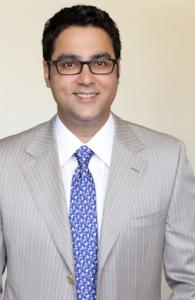
Dr. Sina Bari Explores the Use of GANs to Predict Pediatric Craniofacial Disorder Outcomes
Dr. Sina Bar speaks on the Use of GANs to Predict Pediatric Craniofacial Disorder Outcomes
OAKLAND,, CA, USA, July 30, 2021 /EINPresswire.com/ -- Among the most common human congenital disabilities, pediatric craniofacial disorders are second only to congenital heart diseases, and they present an enormous health challenge and social burden. With Medical AI and Healthcare Technology integrating with Generative Adversarial Networks (GANs), Dr. Sina Bari hopes that his advancements in this field will allow plastic surgeons like himself to show parents a glimpse of the results before their children or wards undergo surgery.Dr. Sina Bari’s Tech Background in AI and Machine Learning Is a Crucial Part of This Development. Though he would later specialize in plastic surgery, Sina Bari MD had a somewhat tortuous personal journey to this role. From a young age, he fell in love with computer science and first learned to program at eight years of age. He would sit next to his mother, translating her programming texts. Sina Bari went on to work in networking and parallel computing in high school, where he won an award from the National Science Foundation. During his undergraduate and medical school period, he worked in IT to pay his fees.
Upon completing medical school, Dr. Sina Bari was one of three selected participants in Stanford Hospital and Clinics’ accelerated Plastic Surgery residency. Here, he trained with industry leaders to learn advanced techniques in craniofacial surgery, hand surgery, reconstructive surgery and aesthetics.
Having been previously exposed to tech, Sina Bari MD once again connected with his early passion via the bio innovation program at Stanford. He hopes that GANs will help doctors give more accurate depictions of craniofacial procedural results.
How Dr. Sina Bari Aims to Improve Craniofacial Disorder Outcomes Using Advanced AI Techniques. With his experience in computer science and plastic surgery, Dr. Sina Bari has created sophisticated artificial intelligence algorithms to help not only surgeons but also parents visualize plastic surgery outcomes. This breakthrough will allow surgeons to better counsel and guide parents on realistic post-op expectations. Medical AI technology will also help doctors pick the most appropriate treatment route for every pediatric patient. At the same time, it will help patients’ parents better understand potential complications and get a more realistic idea of the potential time frame for recovery.
Helping pediatric patients suffering from craniofacial disorders go on to lead their best lives forms part of the core of what Sina Bari MD is all about. And, with these groundbreaking advancements in medical AI, he hopes to change how plastic surgeons interact with children and create a more rounded understanding of and improve satisfaction with results.
Caroline Hunter
Web Presence, LLC
email us here
EIN Presswire does not exercise editorial control over third-party content provided, uploaded, published, or distributed by users of EIN Presswire. We are a distributor, not a publisher, of 3rd party content. Such content may contain the views, opinions, statements, offers, and other material of the respective users, suppliers, participants, or authors.


